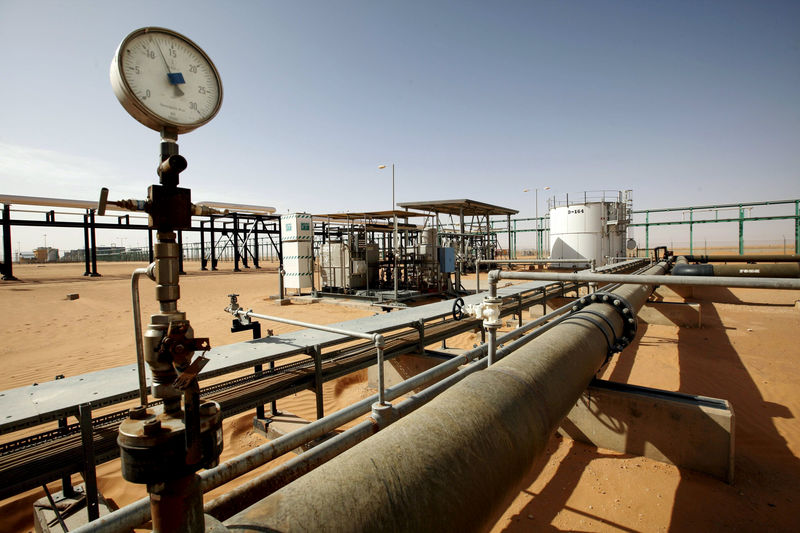By Alex Lawler
LONDON (Reuters) - Oil hit a five-month high above $71 a barrel on Tuesday, supported by concern that violence in Libya could further tighten supply already squeezed by OPEC cuts and U.S. sanctions on Iran and Venezuela.
Supply curbs led by the Organization of the Petroleum Exporting Countries have underpinned a more than 30 percent rally this year for Brent crude, despite downward pressure from fears of an economic slowdown and weaker demand.
Brent, the global benchmark, rose to $71.34 a barrel, the highest since November, and by 0825 GMT was up 14 cents at $71.24.
U.S. crude also hit a November 2018 high of $64.77 and was later up 22 cents at $64.62.
"Libya's oil production and exports have not been jeopardized but the rise in tension is enough to send oil prices higher," Tamas Varga of oil broker PVM said.
OPEC member Libya pumps around 1.1 million barrels per day (bpd), just over 1 percent of global oil output. Supply has been volatile since the 2011 uprising against Muammar Gaddafi.
"Concerns over the potential squeezing of supply in Libya following the escalation of violence there are adding fresh impetus," analysts at JBC Energy wrote.
On Monday, a warplane attacked Tripoli's only functioning airport as eastern forces advancing on the Libyan capital disregarded international appeals for a truce.
Yet despite generally bullish oil markets, concerns that an economic slowdown this year will hit fuel consumption have been preventing crude prices from rising even higher, traders said.
Recent increases in U.S. crude inventories have also put a lid on price gains. U.S. crude stocks are forecast to have risen by 2.5 million barrels last week, the third straight weekly addition.
The American Petroleum Institute, an industry group, issues its supply report at 2030 GMT, ahead of Wednesday's official figures.
Looking ahead, a further rally in prices or downward trend in inventories could prompt OPEC and its partners to reconsider their production-cutting pact when they next meet in June.

Russia, a reluctant participant in the supply cuts, signaled on Monday it wanted to raise output when it meets with OPEC because of falling stockpiles.